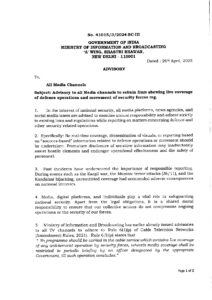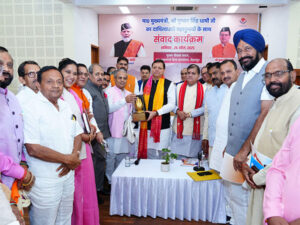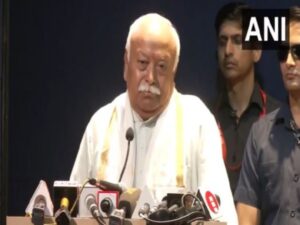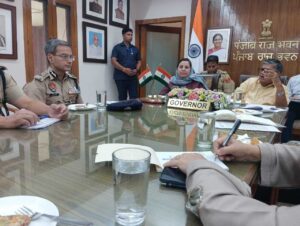Not possible for anyone and everyone to be a dictator: Book
New Delhi, Sep 15 (PTI) Anyone and everyone cannot be a dictator – the very first requirement is that a potential autocrat must come of age when the political system of the country is unstable, says former diplomat Rajiv Dogra in his new book.
In “Autocrats: Charisma, Power, and Their Lives”, Dogra provides real-life situations of how an authoritarian’s cult takes hold, grows, and sustains itself.
The book, published by Rupa, describes grippingly their personality, their psychological make-up, and their private lives. It also uncovers the inner demons of these strongmen, their anxieties and their phobias.
So, can all self-willed leaders be categorised as dictators? The author says no.
“It is not possible for anyone and everyone to be a dictator. The very first requirement is that a potential dictator must come of age when the political system of his country is unstable,” he writes.
It also requires a confluence of many other events to ensure his rise, he says.
“First, a person must be born with the potential to develop brutal personality traits. These include narcissism, paranoia and an overwhelming desire for control. A potential dictator is likely to have grown up in difficult times and he could have suffered physical and psychological abuse in his childhood. His youth may have been marked by anti-social behaviour.”
What are the other signs to look for in such a person?
“An early indicator is a dictator’s ability to inspire enthusiasm. Narcissistic leaders promise to achieve amazing results. They are great at presenting themselves and their ideas. Even more importantly, their speeches mesmerise people into believing that at last the messiah they were waiting for has arrived.”
Dogra says Libyan dictator Muammar Gaddafi’s case illustrates the narcissistic streak well.
“He considered himself a fashion icon and would say, ‘Whatever I wear becomes a fad. I wear a certain shirt and suddenly everyone is wearing it.’ … As a narcissist, Gaddafi wanted everybody to know and love him,” he writes.
Since many dictators are narcissistic, can we simply use that trait to predict who is likely to become one?
Dogra says this is difficult to assert as an absolute confirmation because all dictators do not come to power in the same fashion or under similar circumstances.
“For example, Kim Jong-Un was raised in an extremely privileged, ‘Western’ childhood. When his father died, the younger Kim simply glided into his dynastic position. As against this, Saddam Hussein climbed the hard way through the Iraqi political system for years till he was able to strong-arm his way into power.
“If an audacious Idi Amin grabbed power by the barrel of a gun, a submissive (Nicolae) Ceausescu was catapulted into it by wily politicians in the hope they would control the levers of power. Mao Zedong led the communist army through a long civil war before he assumed dictatorial powers over his country. Hitler staged many unsuccessful coups before he could come to power,” he writes.
Dogra adds that despite these differences, a common trait among dictators is their enormous confidence in always being right, regardless of the subject or issue at hand.
According to the author, each one of these dictators reflected a different personality trait, their mode of governance was not alike, but as a broad category they were all a carefully calculated act, meant to convey a message.
“The public is invariably taken in by the theatrics and the form of the act. Dictators, especially those from an army background, appear to people as confident examples of fitness, as persons who pump iron. They also give the impression of being confident and quick with their decisions,” he writes.
“But usually there is another side to them. In private many are uncertain of their authority, insecure about their image and plagued by self-doubt. These strong men, despite their sense of huge power, are known to suffer from severe anxiety. One reason could be the fear of assassination by their enemies within and outside the country,” the book says.
Dogra, who served as consul general of India in Karachi and ambassador of India to Italy, Romania, Moldova, Albania and San Marino, has authored books like “Durand’s Curse: A Line Across the Pathan Heart”, “Where Borders Bleed: An Insider’s Account of Indo-Pak Relations”, “India’s World: How Prime Ministers Shaped Foreign Policy,” and “Second Night”.






